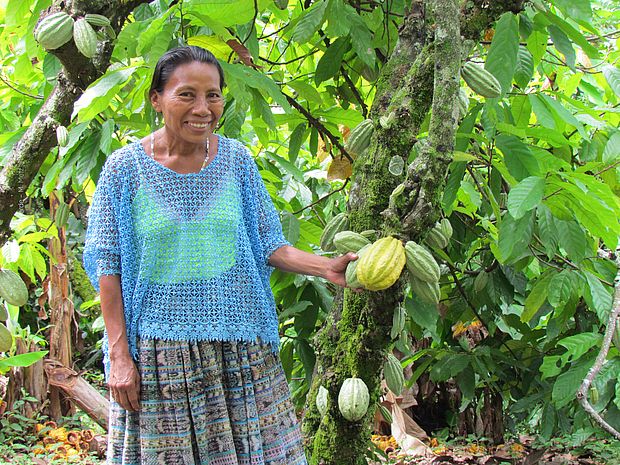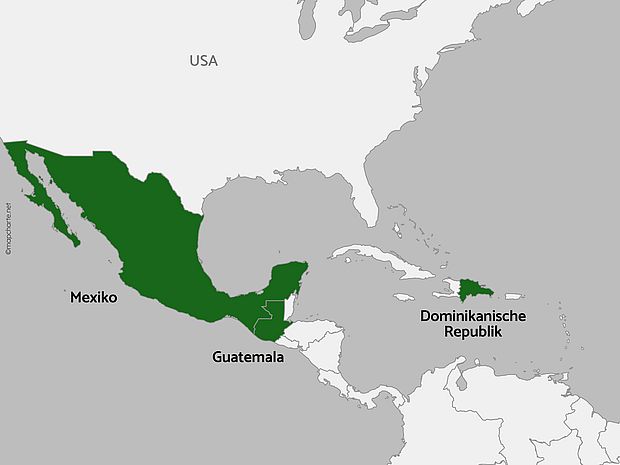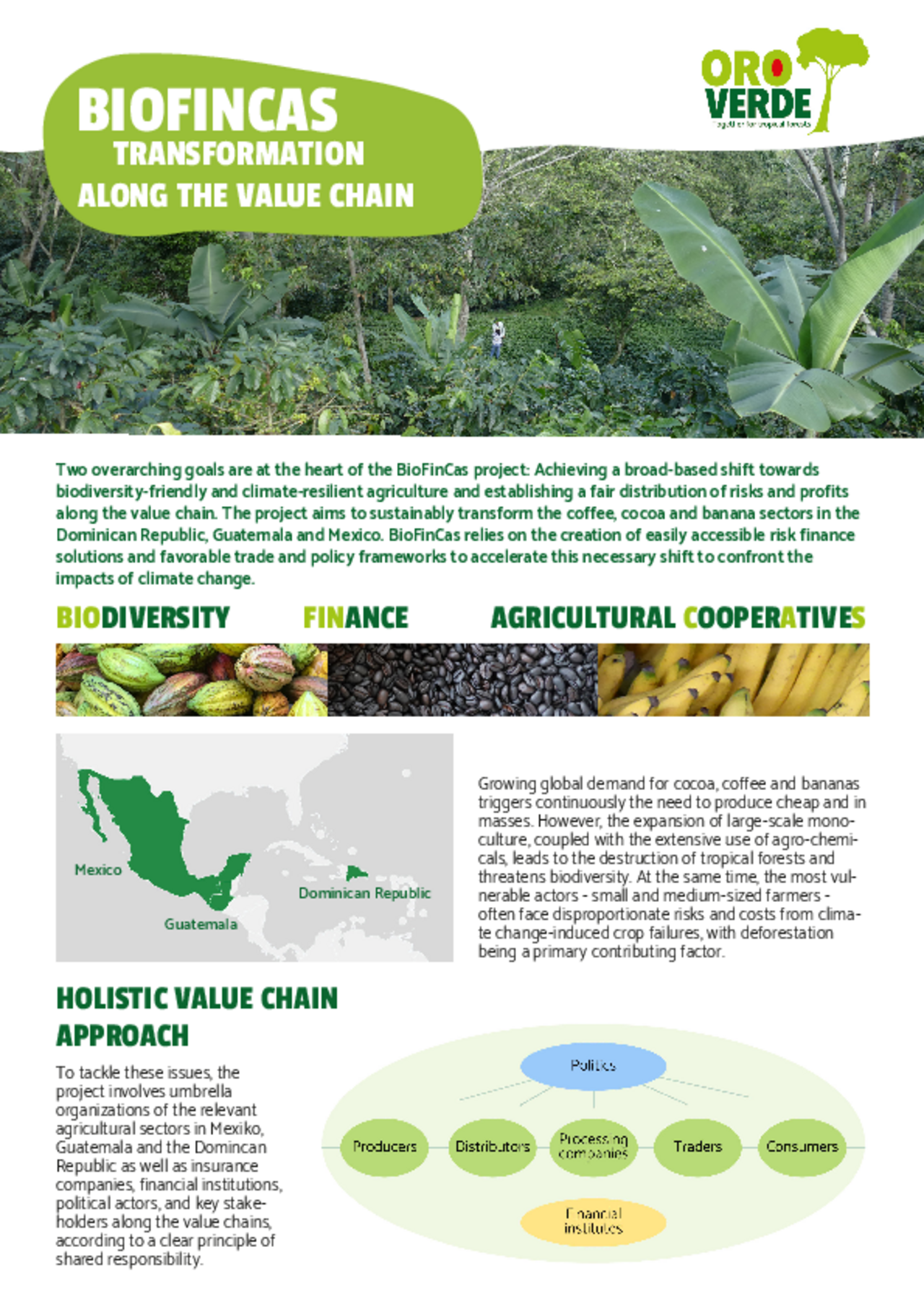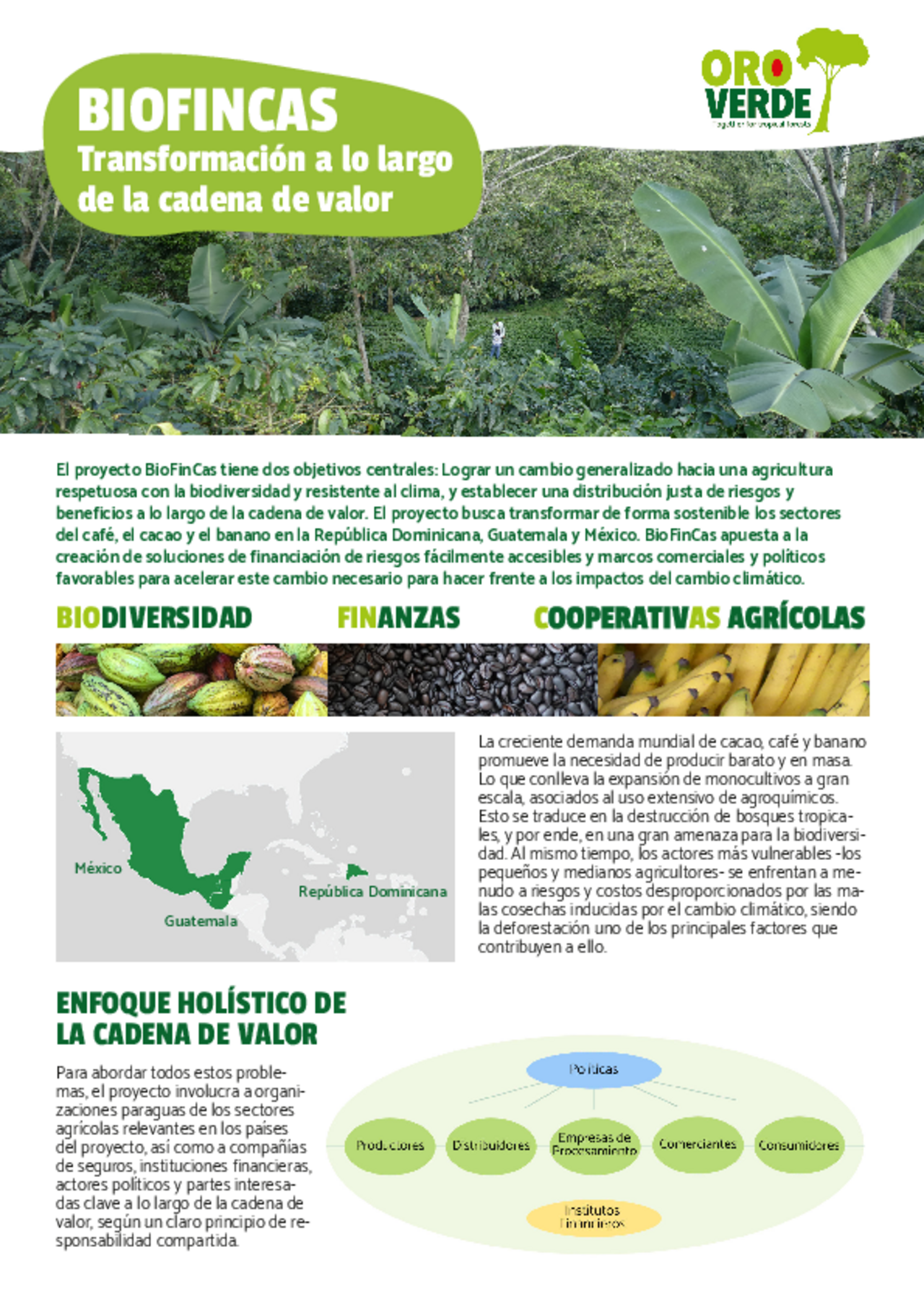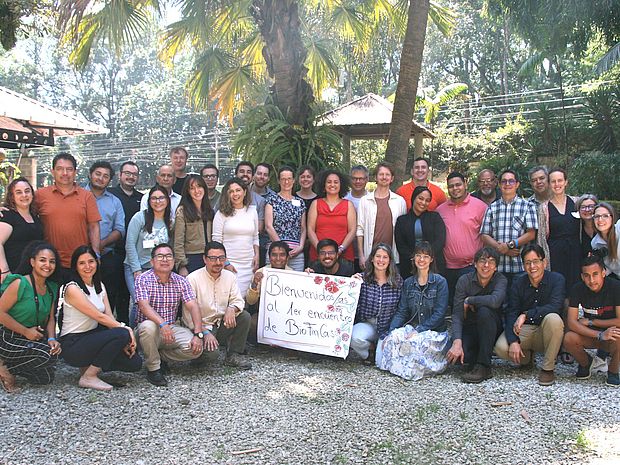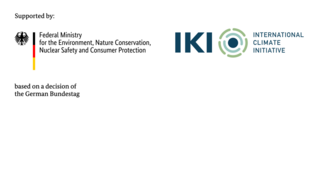Imagine a world in which sustainable farming methods and biodiverse-rich agriculture are the norm rather than the exception. Their effectiveness to counteract the impacts of climate change is beyond question. But what is needed to establish them across the board? This key question is the driving force behind the BIOFINCAS project. And with this goal in mind, we are paving the way for a fair and climate-resilient future.
Do you prefer to continue in Spanish? Follow the link to learn more about BIOFINCAS – Comprometidos con la Biodiversidad.
A Daily Delight: Coffee, Chocolate, and Bananas
The irresistible smell of coffee in the morning, the rich taste of melting chocolate on your tongue, the dense sweetness of a ripe banana – delicacies that we find on plates around the world every day. It is hard to imagine living without them.
Rising Demand Meets Climate Challenges
No wonder demand continues to rise. At the same time, extreme weather events linked to climate change are increasing and actively threatening crop yields. Fluctuating, sometimes skyrocketing world market prices are the result. The profits do not reach smallholders and their families, despite their significant contribution to overall production. Instead, they are often left with the increasing risks of crop losses or failures. To overcome all these problems, a broad-based conversion to biodiversity-friendly agriculture is not just an option. It is necessary.

Driving Change for a Biodiverse Future
The BIOFINCAS project is pioneering the way to a more sustainable agriculture while relying on three key areas to speed up the shift:
- creating finance solutions for small and medium-sized agricultural enterprises and ensuring accessibility
- fostering capacity building and financial literacy
- raising consumer awareness for sustainable products
By developing innovative, science-based strategies in these fields, the project aims to sustainably transform the coffee, cocoa and banana sectors in the Dominican Republic, Guatemala, and Mexico towards biodiversity-friendly and climate-resilient agriculture. Its second overarching goal is to establish a fair distribution of risks along all value chains of the respective sectors.
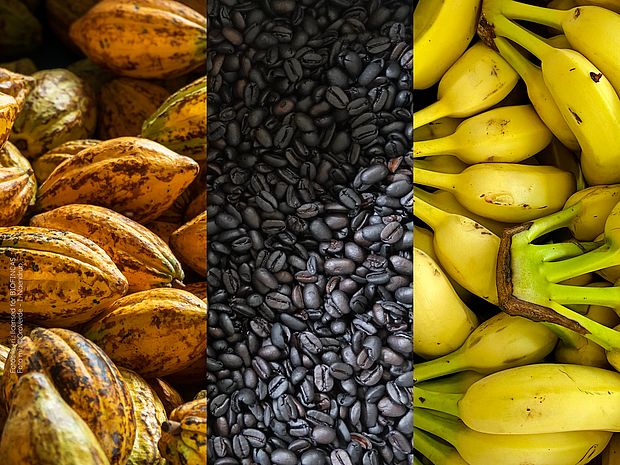
The Background: From Monocultures to Sustainable Farming
The growing global demand for cocoa, coffee and bananas continuously triggers the need for cheap mass production. As a result, the expansion of large-scale monocultures, coupled with the extensive use of agro-chemicals, leads to the destruction of tropical forests, and threatens biodiversity. At the same time, the most vulnerable actors – small and medium-sized farmers (SMEs, small and medium-sized enterprises) – often face disproportionate risks and costs from climate change-induced crop failures, with deforestation being a primary contributing factor. The loss of family livelihoods is one of the drastic consequences smallholders frequently struggle with.
Biodiverse-friendly farming methods have proven to be efficient means to cushion the multifaceted impacts of climate change and to safeguarde family incomes. They are much less susceptible to droughts, prevent soil erosion, loss of soil fertility as well as pest infestation. However, the transition to sustainable agriculture is time-consuming and cost intensive. Smallholders have hardly any opportunity to obtain loans to bridge the gap or to get insured against climate change-related crop losses.
What we aim for: Action on the Ground and Beyond
BIOFINCAS aims to accelerate change in agriculture from a political, practical and financial perspective. To this end, the project will:
- Develop risk finance solutions that can be replicated on a larger scale. These solutions will serve to reduce and distribute liabilities along the value chains of cocoa, coffee, and bananas in the three project countries.
- Center on capacity building in the project countries. These interventions will focus on the dissemination of biodiversity-friendly practices in banana plantations and coffee and cacao agroforestry systems. Furthermore, workshops will be held to improve general financial literacy.
- Develop policy recommendations for sustainable agriculture for small and medium-sized farmers that will be integrated into policy dialogue and proposed for national strategy plans.
- Conduct consumer campaigns to raise awareness in Germany and the European Union.
- Participate in national and international platforms to raise awareness and advocate for the development of holistic solutions.
- Foster marketing strategies that are more resilient to the consequences of climate change.
With these steps, BIOFINCAS effectively creates incentives and frameworks that support the implementation of models for the transition to biodiversity-friendly production. The project also addresses the different stakeholders along the value chains – both nationally as well as in Germany and in the EU – to win them over as multipliers.
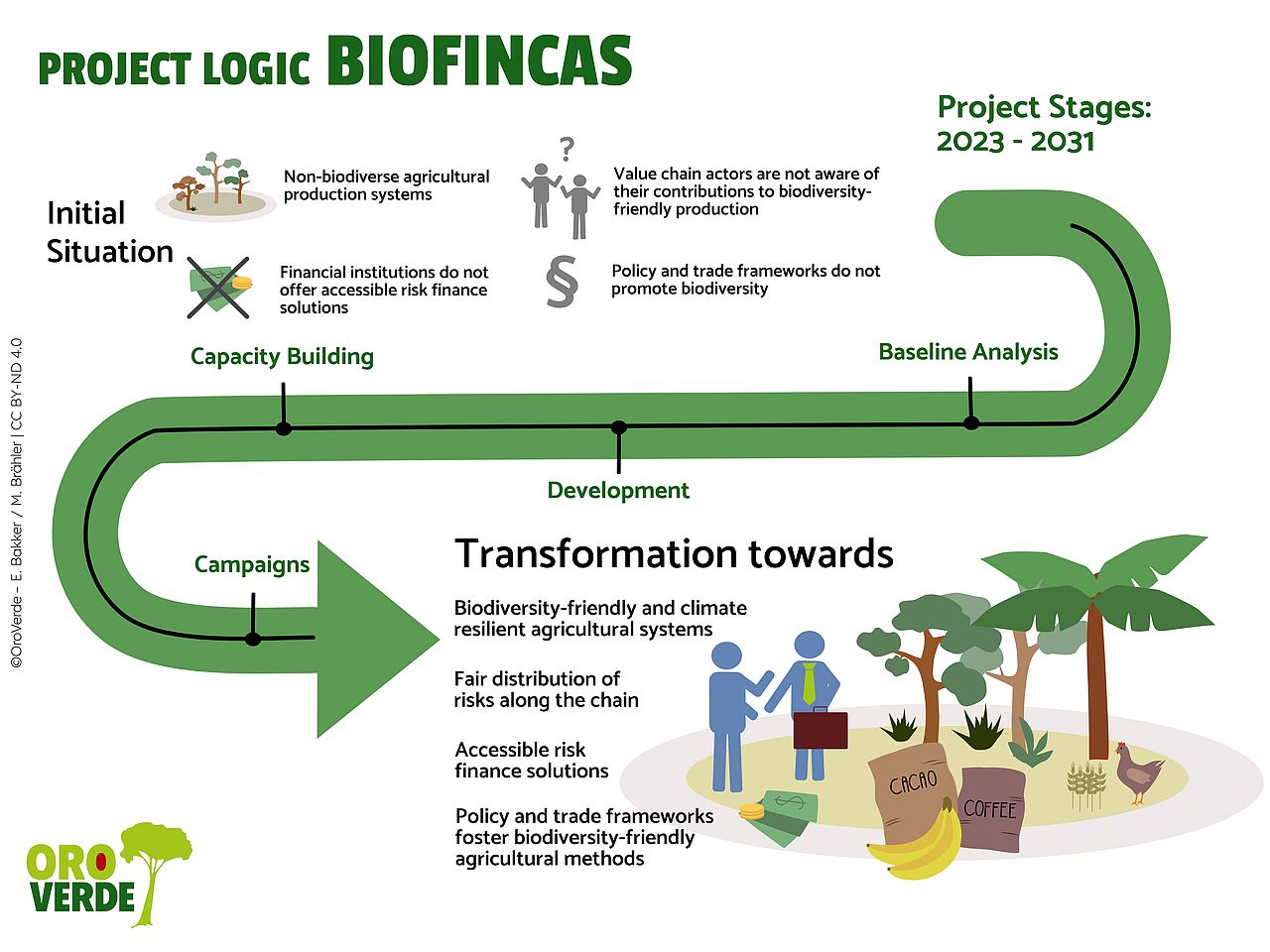
Transformation of farms towards havens of biodiversity and sustainability
Shared Responsibility along the Value Chains
To tackle all these issues, the project involves umbrella organizations of the relevant agricultural sectors in the project countries as well as insurance companies, financial institutions, political actors, and key stakeholders along the value chain according to a clear principle of shared responsibility.
Who we seek to benefit
BIOFINCAS works with agricultural organizations representing small and medium-sized farmer cooperatives. Groups led by women, young adults and/or ethnic minorities, that seek to increase their biodiversity-friendly or climate adaptation practices, will be addressed preferentially.
Project duration
2023 – 2031
Project regions
Dominican Republic, Guatemala, Mexico
Agricultural sectors
Banana, Cocoa, Coffee
Core working areas
Biodiversity | Value Chains | Policy and Trade frameworks | Financial sector
Main targets
- Transformation towards biodiversity-friendly and climate resilient agricultural systems
- Fair distribution of risks along the value chain
- Innovative and accessible risk finance solutions for small and medium-sized farmers
Beneficiaries
- Agricultural organizations representing small and medium-sized farmer cooperatives
- In particular groups led by women, young adults and/or ethnic minorities
BIOFINCAS is a consortium of ten non-profit organizations and research institutions under the project lead of OroVerde. All are nationally and internationally recognized for their expertise in sustainable agriculture, biodiversity conservation, financial and risk management tools, organizational strengthening and value chain development, sustainable consumption, and access to niche markets.
- Alliance Biodiversity & CIAT
- Centro para la Educación y Acción Ecológica, Naturaleza, Inc. (CEDAE)
- Fundación Capital
- Fundación Defensores de la Naturaleza (FDN)
- Nuup
- Pronatura Sur, A.C.
- Südwind e.V.
- Thünen Institute
- United Nations University, Institute for Environment and Human Security (UNU-EHS) / Munich Climate Insurance Initiative (UNU-MCII)
and OroVerde - Tropical Forest Foundation
Project consortium
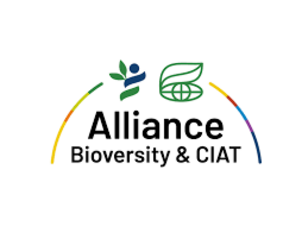
Alliance of Biodiversity International and the International Center for Tropical Agriculture (CIAT)
Alliance specializes in implementing solutions for sustainable agricultural systems through development research, focusing on the use of participatory, collaborative and empowering approaches when working with farmers and policy makers. It has a long history of research on banana (including coordination of two global Musa networks), coffee and cocoa in the Americas and around the world. It is part of the Secretariat of the Food, Agriculture, Biodiversity, Land Use and Energy Consortium (FABLE). FABLE is a global network of researchers developing national pathways consistent with global sustainability goals. In the project, Alliance is involved in biodiversity monitoring and evaluation, training, as well as in the development of the FABLE model, and the training of FABLE teams in the Dominican Republic and Guatemala.
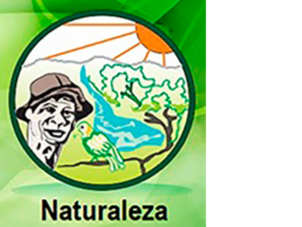
CEDAE Centro Naturaleza - Centro para la Educación y Acción Ecológica
CEDAE is a civil society organization founded in 1989 in the Dominican Republic. CEDAE is a strong national partner with an interdisciplinary team of professionals with years of experience in implementing international cooperation projects, including those funded by IKI. CEDAE has extensive experience in the development of agroforestry systems, climate change adaptation measures in degraded areas, consolidation of local multi-sectoral governance mechanisms to improve the management of ecosystem services, creation of local financing mechanisms to finance adaptation measures and watershed management with focus on ecosystem-based adaptation (EbA). CEDAE is BIOFINCAS national partner in the Dominican Republic and will work closely with cocoa, coffee and banana organizations to integrate biodiversity and climate-friendly practices. As a national partner it is involved in all thematic approaches of the project.
Fundación Capital is a nonprofit social enterprise dedicated to improving the financial lives of people living in poverty around the world. In partnership with governments and the private sector, it designs and delivers scalable solutions that improve the economic prospects of millions of people. Fundación Capital specializes in the development of digital technology-based solutions that empower users to learn in their own space and time, make better use of their economic opportunities, create sustainable livelihoods and improve their financial practices. It is the leader in the development of financial solutions and digital technologies in BIOFINCAS.
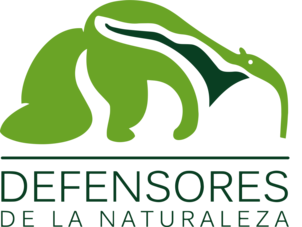
FDN is a non-profit environmental organization founded in 1986 in Guatemala, with a strong track record in conservation and management of protected areas. Over the years, it has established strong partnerships with various stakeholders in the areas of environmental education, agricultural sustainability, and climate change resilience and adaptation. It works with a range of actors in the public as well as private sector for nature conservation. FDN has extensive experience in producer empowerment, starting with engaging individual producers and providing them with tools, knowledge and resources to organize and develop communities through sustainable and rational use of natural resources. FDN is BIOFINCAS national partner in Guatemala and will work closely with cocoa and coffee organizations to integrate biodiversity and climate-friendly practices. As a national partner it is involved in all thematic approaches of the project.


Munich Climate Insurance Initiative (UNU- MCII) – United Nations University, Institute for Environment and Human Security (UNU-EHS)
The United Nations University (UNU) is the academic arm of the United Nations and acts as a global think tank. UNU-EHS hosts the Munich Climate Insurance Initiative (MCII), a platform with diverse partners and extensive expertise that promotes the role of risk transfer solutions for the poor and vulnerable. UNU-EHS has long experience in conducting Economics of Climate Adaptation (ECA) in different countries and sectors to analyze and identify the most appropriate adaptation measures and insurance solutions. It is therefore well placed to advice project stakeholders on the best channels to apply for climate finance. UNU/ MCII conducts quantitative climate analysis (ICBRM & ECA), bridging the gap between climate disaster analysis, biodiversity and climate action, thus facilitating disaster financing decisions. In collaboration with local partners, it develops and supports the implementation of risk financing solutions and promotes stakeholder dialogue on risk transfer and disaster financing.

Nuup is based in Mexico City and has strong links with the financial sector. Its expertise extends to the coffee value chain, and it has demonstrated its competence in developing digital solutions, as evidenced by its work on the Sirio app. Nuup is a national partner of BIOFINCAS in Mexico and will work closely with coffee organizations to integrate biodiversity and climate-friendly practices. Nuup will actively participate in efforts related to value chains and the provision of risk financing solutions.
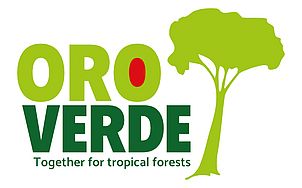
OroVerde, founded in 1989, is a foundation for the protection of the rainforest. In BIOFINCAS, OroVerde is responsible for the overall coordination of the project as well as the exchange between national partner organizations and international partners and other relevant international projects and initiatives. OroVerde will provide ongoing facilitation to ensure collaboration and alignment of activities across the consortium, working closely with the project steering committee and working group leaders. OroVerde will be responsible for overall project monitoring, financial management, reporting and liaison with ZUG. In addition, OroVerde will develop and implement campaigns in Germany and the EU to raise awareness and mobilize support for biodiversity-friendly cocoa, coffee and banana practices in producing countries. Together with its partners, OroVerde will be responsible for integrating project results into international discussions and networks.
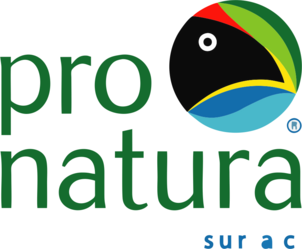
Pronatura Sur has more than four decades of valuable experience in the project region. It has a strong network of contacts with local cooperatives and extensive knowledge of biodiversity monitoring. Pronatura Sur is a national partner of BIOFINCAS in Mexico and will work closely with coffee organizations to integrate biodiversity and climate-friendly practices. As a national partner it will play a more prominent role in activities related to biodiversity-friendly initiatives and in the development of policy frameworks.
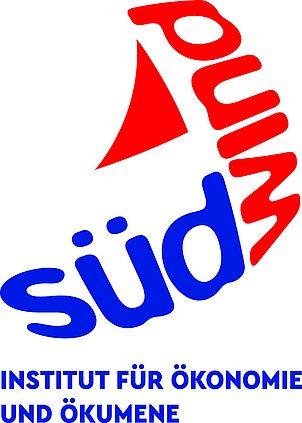
For more than 30 years, SÜDWIND has been involved in the debate on human rights violations and due diligence, including ecological aspects, in various agricultural value chains (e.g. coffee, banana, cocoa, rubber, cotton) on different levels, including field research, lobbying politicians in Germany and at EU level, discussions with companies, organizing conferences, etc. In addition, SÜDWIND has participated and participates in political discussions on the various legislations in Germany and at the European level concerning human rights due diligence, biodiversity, deforestation-free value chains and the green economy in general. SÜDWIND leads the market and value chain analysis for the different crops in the three project countries, the identification of entry points, the formulation of recommendations and the establishment of stakeholder dialogues on shared responsibility. In addition, SÜDWIND contributes to the analysis of the policy framework at international and EU level and the identification of opportunities to promote biodiversity.

Founded in 2008, the Thünen Institute is a research institute under the German Federal Ministry of Food, Agriculture and Consumer Protection (BMELV) working at the interface between science, politics and society. The Thünen Institute's expertise in monitoring, analysis and simulation of biodiversity and economic status in agricultural landscapes and their relationship to the quality and spatial arrangement of habitats is crucial for this project, especially with regard to the effects of alternative agricultural practices on biodiversity. The Thünen Institute will be responsible for the analysis of the impact of agricultural practices on biodiversity and economic profitability at the farm level, based on existing studies in the region and its own field studies in cocoa, coffee and banana systems together with national partners in the Dominican Republic, Guatemala and Mexico. The Thünen Institute, with the support of national partners, will also develop and implement a protocol for assessing the impact of biodiversity-friendly practices on biodiversity and income. In collaboration with Südwind, the Thünen Institute is leading the analysis of international trade agreements relevant to the cocoa, coffee and banana value chains in the Dominican Republic, Guatemala and Mexico, as well as EU legislation on deforestation.
Political Partners
Ministry of Agriculture (MAGA), Guatemala
Ministry of Agriculture, Dominican Republic
Ministry of Environment and Natural Resources (SEMARNAT), Mexico
Questions about the project?

Torsten Klimpel
+49 228 24290-22
tklimpel[at]oroverde[dot]de
Photo credits: Landscape Guatemala, 2024 (top) and detail coffee beans (collage): OroVerde - I. Naendrup / Details cocoa fruits and bananas (collage): licensed for BIOFINCAS / Infographic "Project logic": ©OroVerde – E. Bakker / M. Brähler | CC BY-ND 4.0 / Woman with cocoa fruit: OroVerde - M. Metz
Last update: 13.09.2024


